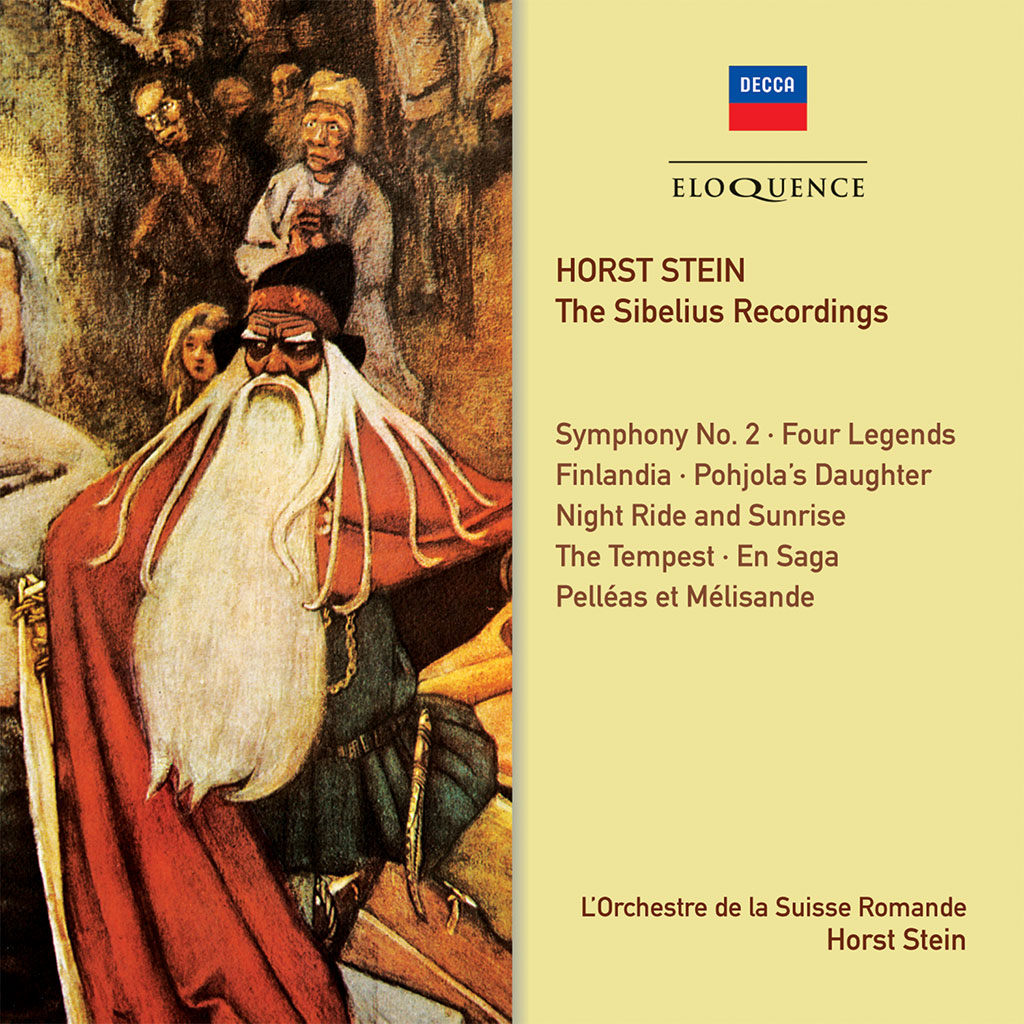To mark the 150th anniversary of the birth of Sibelius, Decca Eloquence collects together the four LPs of the composer’s music that Horst Stein recorded for Decca between 1971 and 1981. They include all the important tone poems, the Second Symphony (receiving its first international release on CD) and music for the theatre. All were critically acclaimed in their time. Known in particular for his work in Bayreuth, Stein conducted 76 performances there between 1969 and 1986. He also held principal positions with the Bamberg, Basel, NHK (Japan) and Suisse Romande Orchestras and all his Sibelius recordings were made with this Swiss orchestra.
JEAN SIBELIUS
CD 1
Symphony No. 2 in D major, Op. 43*
Night Ride and Sunrise, Op. 55
Finlandia, Op. 26
CD 2
Four Legends, Op. 22
En Saga, Op. 9
Pohjola’s Daughter, Op. 49
CD 3
Pelléas et Mélisande, Op. 46
The Tempest, Op. 109 Nos. 1 & 2
L’Orchestre de la Suisse Romande
Horst Stein
*FIRST INTERNATIONAL RELEASE ON CD
Recording Producers: Michael Haas (Symphony No. 2); John Mordler (Night Ride and Sunrise, Finlandia, En Saga, Pohjola’s Daughter); Tom Mowrey (Four Legends); Richard Beswick (Pelléas et Mélisande, The Tempest)
Balance Engineers: Colin Moorfoot (Symphony No. 2, Four Legends); James Lock (Night Ride and Sunrise, Finlandia, En Saga, Pohjola’s Daughter); Colin Moorfoot, John Pellowe (Pelléas et Mélisande, The Tempest)
Recording Location: Victoria Hall, Geneva, Switzerland, 11–14 June 1971 (Night Ride and Sunrise, Finlandia, En Saga, Pohjola’s Daughter); 30 June–2 July 1978 (Pelléas et Mélisande, The Tempest); 25–27 January 1980 (Four Legends); 22, 23 & 25 October 1981 (Symphony No. 2)
‘well-wrought performances … the finest thing on this disc is to my mind Pohjola’s Daughter of which Mr. Stein gives a powerful and compelling account, and whose atmosphere and detail is excellently captured by the Decca engineers … Stein has a genuine feeling for Sibelius’ Gramophone
‘the playing in that warhorse Finlandia is enormously alert’ Gramophone
‘most vividly recorded … Stein obviously has a genuine feeling for this music [Pelléas et Mélisande] … [The Tempest] is most impressively played and recorded’ … The recording is superb in both definition and range.’ Gramophone
‘the recording has thrilling presence and clarity … “Leminkäinen’s Return” is given an exciting hell-for-leather performance that holds the listener in its sheer gusto and intensity.’ Gramophone




